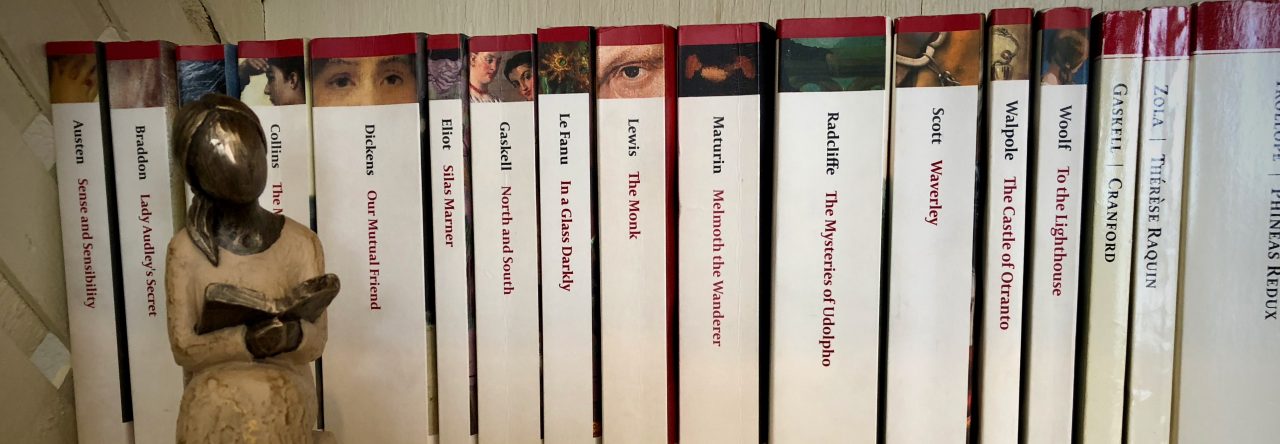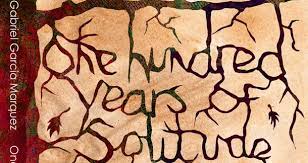I’ve been a little frustrated with myself this week, because I haven’t been reading as much has I should.
Which translates to: I’ve only finished reading six books this month. You know, only six. And only two classics.
But as I was sitting here just now, looking at Pinterest, thinking about how I should be reading, I realized, you know what? It’s okay.
I want to be one of those people who doesn’t waste hours on social media. One of those who reads in her free time, and reads edifying, meaty books, not fluffy stuff (not all the time.) And because the pull of social media is strong, and it’s easy to – whoops! – lose an hour or three, I feel guilty when I catch myself browsing instead of reading.
All of this is well and good. Really. And in fact, most of the time I would be decently successful at it. I used to read constantly, all the time, in all the quiet spaces and spare five minutes and oops I forgot my chores kind of way. I could resurrect that with a little thought and self-awareness.
I’m going to give myself permission not to. Not right now. Not completely.
I’ve been working on a creative writing project, one that’s been cooking for literally decades, and the timer’s dinged. So every day, for as much as six or seven hours, I’ve been hanging out in another world, building something on a blank white screen. It’s been amazing. It’s also tiring.
I don’t feel exhausted when I stop, I feel energized, which is why I think I’ve taken so long to come to that realization. My brain is tired.
I also don’t want to read anything that might infect the voices I’m writing in. No genre fiction. None of the T.V. shows I usually watch (I literally spent an hour scrolling through Netflix saying “don’t want to watch that now” until I finally just turned the TV off). I wrote earlier this week that as a result of this fast that kind of naturally developed, I’m more or less solely reading nonfiction and classics. I do enjoy those kinds of books when I do read, which is not never, but just – less. But those kinds of books do take a deeper level of concentration than the skim-through YA or fantasy that I usually turn to when I’m mentally fatigued.
So, I scroll through social media. And I’m going to be okay with that.
Setting goals for yourself is important, and valuable. Having the discipline to follow through with those goals is also important. For me, the Rule Follower, it’s more important to recognize when the goals need to become a little flexible. I had imagined myself spending all summer reading. I’m doing something else, which is wonderful and valuable and definitely not a waste of time, but that means I need to adjust my reading goals.
This blog is still finding its voice, and I’m still working on consistency, but at its heart it is a place for me to think about my year (and hopefully years) focusing on reading the classics. A place for reflection, and, hopefully, for inspiration. And, most importantly, a place for honesty.
So, honestly? I’m reading less (overall) than I would like. And it’s fine.


 Thus far this year, I’ve read 23 classics and nonfiction works. This does include the rereads I did of all of Jane Austen’s six novels, and of Lord of the Rings. Still, out of 47 total books, that’s pretty good. Just less than half. I’m also 90% complete on my (admittedly lowballed) Goodreads reading challenge (52 books). I might be updating that soon.
Thus far this year, I’ve read 23 classics and nonfiction works. This does include the rereads I did of all of Jane Austen’s six novels, and of Lord of the Rings. Still, out of 47 total books, that’s pretty good. Just less than half. I’m also 90% complete on my (admittedly lowballed) Goodreads reading challenge (52 books). I might be updating that soon.
 Time period: Right now I’m reading a book written in the mid-1850s, one from the early 1900s, and one from the late 1900s. This helps because the style is usually different, helping you with the next two items to vary
Time period: Right now I’m reading a book written in the mid-1850s, one from the early 1900s, and one from the late 1900s. This helps because the style is usually different, helping you with the next two items to vary one of the classics I am reading is David Copperfield. Like a lot of Dickens books, if I read too much at one time it can feel like a heavy dose of sentimentality. At the same time, I am reading Sons and Lovers, by D.H. Lawrence. This Modernist book features spare prose and is rather bleak, so by itself it might get too depressing. But the two balance out each other. The third classic is 100 Years of Solitude. Marquez’s book is magical realism. When I get overwhelmed by the number of Aurelianos and strange events I can go back to one of the more realistic works and take a break.
one of the classics I am reading is David Copperfield. Like a lot of Dickens books, if I read too much at one time it can feel like a heavy dose of sentimentality. At the same time, I am reading Sons and Lovers, by D.H. Lawrence. This Modernist book features spare prose and is rather bleak, so by itself it might get too depressing. But the two balance out each other. The third classic is 100 Years of Solitude. Marquez’s book is magical realism. When I get overwhelmed by the number of Aurelianos and strange events I can go back to one of the more realistic works and take a break. One common comment I hear people make is that they could never read multiple books at the same time, as they get them mixed up. To that I ask, can you keep the plot lines and characters of multiple TV shows straight? Sometimes the difficulty arises from a lack of attention. Another benefit of this reading method: reading significantly different works also makes it easier to keep the characters and plots straight.
One common comment I hear people make is that they could never read multiple books at the same time, as they get them mixed up. To that I ask, can you keep the plot lines and characters of multiple TV shows straight? Sometimes the difficulty arises from a lack of attention. Another benefit of this reading method: reading significantly different works also makes it easier to keep the characters and plots straight.